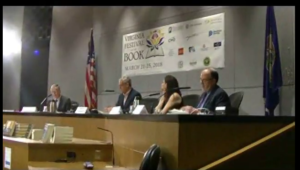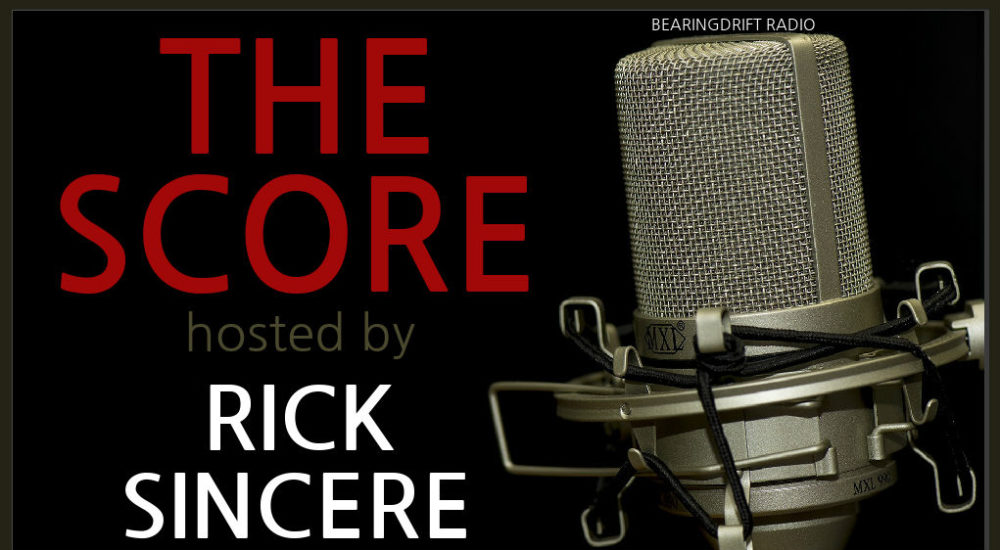The Score: Pentagon Science, Richard Nixon, Social Activists, and Nicotine Regulation
This week on The Score we talk about gun control and gay marriage; the FDA and smokeless tobacco; Richard Nixon, and more.
In the first half of this episode of The Score, we begin with some interviews, left over from last week, with authors who appeared at the Virginia Festival of the Book in Charlottesville. During the second half, we talk to pundits in Washington, D.C., about tobacco regulation and gun control.
First, note that you’re listening to The Score over the Internet. Your ability to do that is due in large part to DARPA – the Defense Advanced Research Project Agency. In the 1960s, that government agency developed DARPANet, the precursor to the Internet.
Sharon Weinberger is author of The Imagineers of War: The Untold Story of DARPA, the Pentagon Agency That Changed the World. I spoke to her about her book last month at the Virginia Festival of the Book.
 Speaking on the same panel of authors as Sharon Weinberger was John Farrell, a journalist and historian who has written a new biography of President Richard Nixon. I asked him how a socially awkward person like Nixon could become a successful politician.
Speaking on the same panel of authors as Sharon Weinberger was John Farrell, a journalist and historian who has written a new biography of President Richard Nixon. I asked him how a socially awkward person like Nixon could become a successful politician.
As a post-script to that discussion about Richard Nixon, I dug into my audio archives for an interview I did with the Miller Center for Public Affairs’ Nixon expert, historian Ken Hughes. We had just seen a screening of the film “Frost/Nixon” with actor Frank Langella. I asked Hughes about Nixon’s post-presidential career and attempts at rehabilitation.
(John Farrell and Sharon Weinberger spoke on the same panel as the Miller Center’s William Hitchcock, whose new book, The Age of Eisenhower, we featured on the March 24 episode of The Score.)
Roben Farzad hosts the weekly program Full Disclosure on NPR One and is a special correspondent on PBS NewsHour. He was previously a senior writer for Bloomberg Businessweek. His most recent book is called Hotel Scarface: Where Cocaine Cowboys Partied and Plotted to Control Miami. It’s the colorful, action-packed story of now-retired drug dealers who made and lost illicit fortunes in the 1980s. When I spoke to Farzad at the Virginia Festival of the Book, I began with what I thought was a tongue-in-cheek question, not knowing I would receive a serious answer about who had bought the film rights to his book.
In the second half of the show, we begin with a discussion about an odd comparison between the movement to attain gay marriage and the high school students’ recent crusade for harsher gun control laws across the country.
I went to DC last week to meet with Brookings Institution visiting fellow James Kirchick at his office. Kirchick is a prolific writer whose articles have appeared in The New Republic, Los Angeles Times, The Tablet, and The Washington Post, which recently published a piece he wrote about that gay marriage/gun control comparison, which he had heard from pundits on both the right and the left. He thinks the comparison leaves a lot to be desired.
That same day in Washington, I spoke to policy advocate Phil Kerpen of American Commitment. He recently wrote about the Food and Drug Administration and its role in regulating tobacco products, a relatively new responsibility for the FDA. Kerpen believes the Trump administration has an opportunity to reverse some bad policies established by its predecessors.
Next week The Score will be back with the last of my interviews from the Virginia Festival of the Book and another discussion with Jamie Kirchick, this time about his book, The End of Europe. And Princeton University political scientist Keith Whittington will tell me about prospects for freedom of expression on college campuses and his book, Speak Freely. And that’s just to start.


